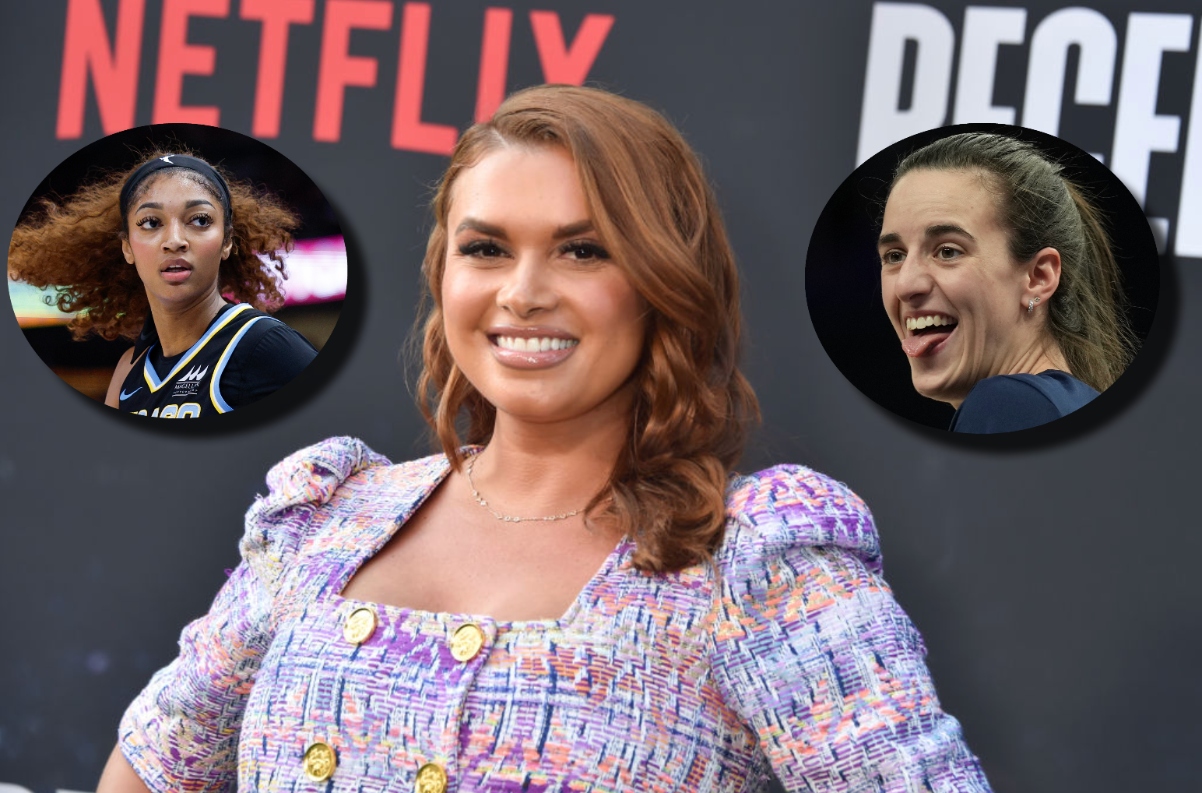The debate surrounding Caitlin Clark’s meteoric rise in popularity and the role of Angel Reese in her success has taken a bizarre turn, thanks to FS1 host Joy Taylor. Taylor’s recent comments suggesting that Clark owes her fame to Reese have ignited a firestorm of criticism, with many calling her claims ‘moronic’ and detached from reality. This article delves into Taylor’s controversial statements, the backlash they’ve received, and why her perspective fails to acknowledge the full scope of Clark’s impact on women’s basketball.
Caitlin Clark’s influence extends far beyond a single rivalry or moment. While rivalries and storylines undoubtedly add to the drama and excitement of sports, attributing Clark’s success solely to a single event or individual is a gross oversimplification. This piece will explore why Taylor’s take is not only inaccurate but also diminishes Clark’s hard work and the groundbreaking records she has set. The narrative around Clark and Reese deserves a more nuanced discussion, one that appreciates the contributions of both athletes without downplaying the unique achievements of either.
Joy Taylor’s Controversial Claim
Joy Taylor’s appearance on a recent show sparked outrage when she asserted that Caitlin Clark’s popularity is largely due to the infamous ring taunt by Angel Reese during the 2023 NCAA championship game. Taylor stated, ‘I just said we would not be talking about Caitlin Clark the way that we do if it wasn’t for that moment with Angel Reese,’ a sentiment she passionately defended despite immediate disagreement from others present.
Taylor elaborated by suggesting that the rivalry ‘upset white men’ and that the storyline between Clark and Reese was essential for selling the WNBA. This approach not only reduces Clark’s achievements to a single, contentious moment but also injects racial undertones into the discussion, further complicating an already sensitive topic. Many critics argue that Taylor’s comments perpetuate a divisive narrative, failing to recognize the broader appeal and skill that Clark brings to the sport.
Immediate Backlash and Disagreement
The immediate reaction to Taylor’s claim was one of disbelief and disagreement. As the article from OutKick reported, ‘Every single person in the room immediately shook their heads in disagreement, laughed at Taylor’s opinion, and rightfully so.’ This widespread rejection underscores how out of touch Taylor’s perspective appears to many within the sports community.
Critics argue that Clark was already a dominant force and a household name before the incident with Reese. Her scoring records, her exceptional court vision, and her overall impact on the game were well-established. To suggest that her popularity hinges solely on a single act of rivalry is seen as undermining her accomplishments and ignoring the broader context of her career.
Caitlin Clark’s Undeniable Impact
Caitlin Clark’s impact on women’s basketball is undeniable, marked by record-breaking performances and a significant increase in viewership. Her ability to hit logo threes, combined with her impressive scoring average, has drawn attention to the WNBA in unprecedented ways. As the original article points out, ‘Clark hits logo threes every time she steps on the floor while averaging nearly 20 points per game.’
This level of skill and excitement has translated into tangible results for the league, with TV ratings soaring and attendance records being shattered. Clark’s appeal extends beyond casual fans; she has captivated a wide audience with her exceptional talent and competitive spirit. Attributing her success to a single rivalry ignores the consistent performance and unique skill set that define her career.
The Role of Angel Reese
While it’s unfair to say Angel Reese has no influence, the notion that she is the primary driver of Caitlin Clark’s popularity is a stretch. Reese is a talented player with her own set of accomplishments. Her on-court presence and competitive nature have undoubtedly contributed to the overall excitement surrounding women’s basketball.
However, the focus tends to shift more towards Clark’s exceptional skill set and record-breaking achievements. A more balanced view recognizes that both players contribute to the league’s narrative, but Clark’s individual performance remains the central draw for many fans. This nuanced understanding avoids the trap of pitting the two athletes against each other unnecessarily.
The Problem with ‘Hot Take’ Culture
The tendency to create ‘hot takes’ and polarizing opinions often overshadows balanced analysis. In the case of Clark and Reese, the media landscape frequently resorts to choosing sides rather than acknowledging the complex interplay of factors that contribute to their respective successes. Joy Taylor’s comments are a prime example of this phenomenon, where a sensational claim gains traction regardless of its factual basis.
This ‘hot take’ culture can be detrimental to the sport, creating unnecessary divisions among fans and diminishing the achievements of individual athletes. A more responsible approach involves appreciating the unique talents of both Clark and Reese, while also recognizing the broader context of women’s basketball and its growing appeal.
Conclusion: A Balanced Perspective
Joy Taylor’s claim that Caitlin Clark’s popularity hinges on Angel Reese is not only inaccurate but also diminishes Clark’s hard work and the groundbreaking records she has set. While rivalries and storylines undoubtedly add to the drama and excitement of sports, attributing Clark’s success solely to a single event or individual is a gross oversimplification. It’s time to move beyond simplistic narratives and appreciate the contributions of all athletes who are elevating women’s basketball.
In conclusion, while the Clark-Reese dynamic has added spice to the WNBA, Clark’s exceptional talent, record-breaking performances, and overall impact on the game are the primary reasons for her widespread popularity. A balanced perspective recognizes the contributions of both athletes without diminishing the unique achievements of either. Moving forward, sports analysts and commentators should strive to provide more nuanced and informed discussions, celebrating the successes of all players and promoting a more inclusive and appreciative environment within women’s basketball.

Leave a Reply